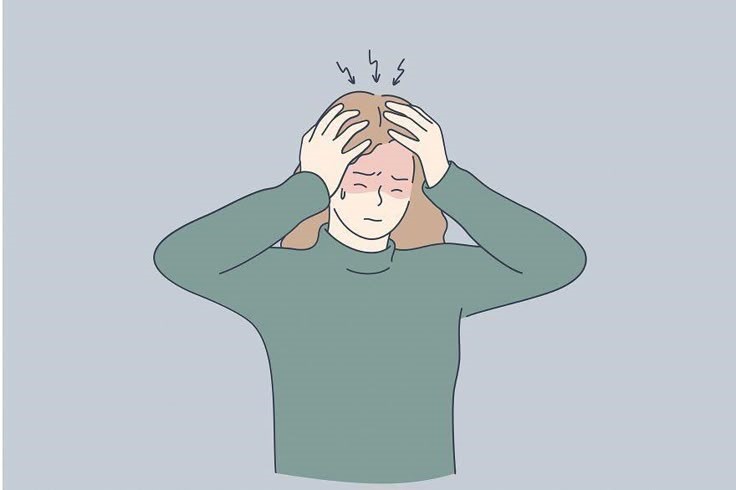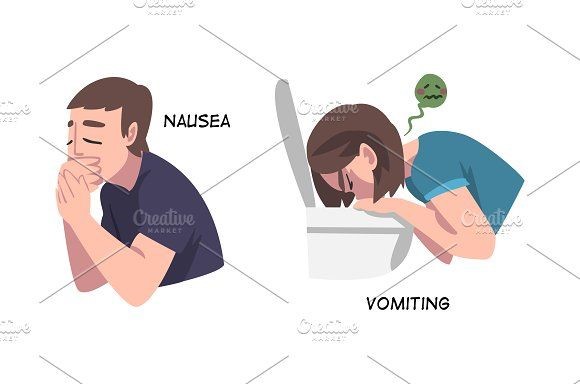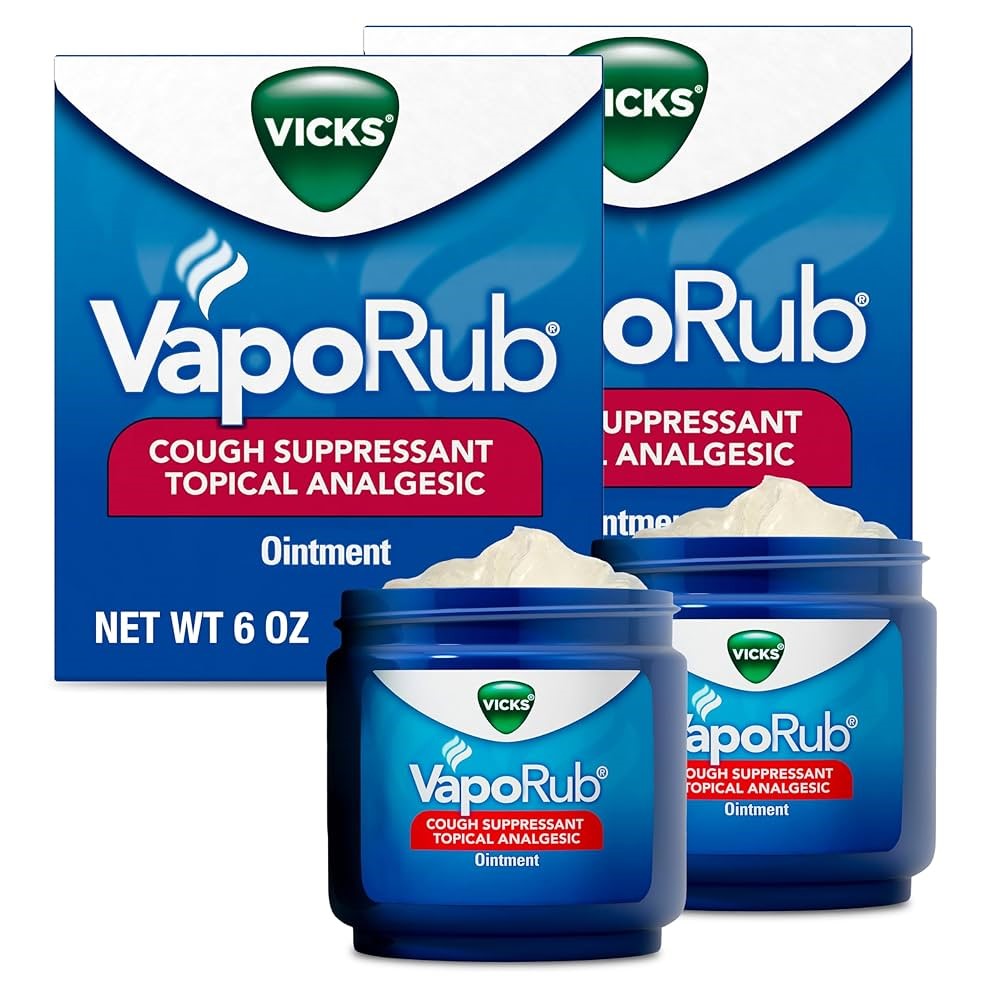Almost everyone has a small blue jar of Vicks VapoRub tucked away in a medicine cabinet. Known for its strong menthol aroma and soothing properties, it’s been a household staple for colds and congestion for over a century. But recently, Vicks has found a new role in the world of home remedies helping relieve nausea. From motion sickness and morning sickness to general queasiness, people are turning to this cooling ointment for quick, aromatic relief. While it’s not a medically approved treatment for nausea, its powerful scent and calming properties have made it a popular go to, especially when traditional methods aren’t available.
History of Vicks VapoRub: At a Glance
| Year |
Milestones |
| Late 1800s | Lunsford Richardson, a pharmacist in North Carolina, begins developing home remedies under the “Vicks” name. |
| 1894 | Introduces “Vicks Magic Croup Salve”, an early form of VapoRub designed to relieve cold symptoms. |
| 1911 | Product is officially renamed Vicks VapoRub. |
| 1918 | During the Spanish Flu pandemic, VapoRub sales skyrocket due to its popularity for easing chest congestion. |
| 1920s | Vicks becomes a household staple across the U.S. for cold and cough relief. |
| 1940s–60s | Expanded advertising and product recognition globally; families pass it down as a trusted home remedy. |
| 1980s–2000s | VapoRub becomes available in various formats (e.g., vaporizer tablets, nasal sprays). |
| Today | Owned by Procter & Gamble, sold in 60+ countries, and widely used not only for colds but also for home remedies including nausea relief. |
How Vicks VapoRub is Made?
Vicks VapoRub is a petroleum based ointment that combines a blend of aromatic and medicinal ingredients known for their soothing and cooling properties. While the exact manufacturing process is proprietary, the general formulation involves mixing key active and inactive ingredients in a controlled environment to ensure consistency, safety, and effectiveness.
Key Active Ingredients
| Ingredient |
Function |
| Menthol (2.6%) | Provides a cooling sensation and helps relieve minor throat and bronchial irritation. |
| Camphor (4.8%) | Acts as a cough suppressant and topical analgesic (pain reliever). |
| Eucalyptus Oil (1.2%) | Offers anti-inflammatory and decongestant effects through its strong aroma. |
Inactive Base Ingredients
| Ingredient | Purpose |
| Petrolatum (petroleum jelly) | Acts as the base to hold all ingredients together and provide a smooth texture. |
| Cedarleaf oil | Adds to the scent and may contribute mild antiseptic qualities. |
| Nutmeg oil, turpentine oil, and thymol | Enhance fragrance and provide slight antibacterial or soothing effects. |
How It’s Formed in Manufacturing
- Melting the Base – Petroleum jelly is gently heated to form a smooth base.
- Blending the Oils – Essential oils (eucalyptus, camphor, menthol, etc.) are measured and blended in precise proportions.
- Infusion & Mixing – The oils are added to the melted base and mixed thoroughly to ensure even distribution.
- Cooling & Packaging – Once fully mixed, the ointment is cooled down and transferred into containers in a sterile environment.
This process ensures that every jar of Vicks delivers the same soothing, aromatic relief people have trusted for generations.
How Vicks VapoRub Helps with Nausea?
Though Vicks VapoRub isn’t officially labeled for nausea relief, many people report that it helps ease feelings of queasiness. But how does a product meant for congestion end up helping with an upset stomach? It all comes down to the power of scent and sensory distraction.
Benefits of Vicks
Aromatherapy Effect
The active ingredients in Vicks especially menthol, camphor, and eucalyptus oil have strong, sharp aromas that can stimulate the senses. These smells can override unpleasant odors or internal sensations that may trigger nausea. This is similar to how peppermint or lemon scents are used in aromatherapy to calm an uneasy stomach.
Sensory Distraction
When you smell something intense like Vicks, your brain shifts focus from your nausea to the cooling, tingly sensation in your nose and airways. This “distraction” can be enough to lessen the feeling of nausea at least temporarily.
Calming the Nervous System
Menthol and eucalyptus oil are also believed to have a soothing effect on the vagus nerve, which plays a role in controlling the stomach and nausea signals. While more research is needed to confirm this, many people find that inhaling the vapors makes them feel calmer and more in control.

Scientific Support
| Study | Findings | Relevance |
| Isopropyl Alcohol for Nausea (2013) | Inhaling alcohol swabs significantly reduced post-op nausea. | Supports scent-based sensory distraction for nausea |
| Peppermint Oil Aromatherapy (2012) | Reduced nausea in chemo patients using peppermint inhalation. | Menthol in Vicks is similar to peppermint’s active compound. |
| Traditional Use of Eucalyptus and Camphor | Used for stress relief and calming purposes. | May indirectly support nausea relief through calming effects. |
Causes of Nausea and How Vicks Helps
Pregnancy (Morning Sickness)
Pregnant women often experience nausea due to heightened sensitivity to strong or foul odors. Vicks helps by masking or neutralizing these strong smells, making the environment more tolerable. Additionally, the menthol scent provides a calming sensory input that can help reduce feelings of nausea and promote relaxation during this sensitive time.
Motion Sickness
Travel frequently induces nausea due to disorientation and sensory mismatch. Vicks can be used as a soothing aromatic aid, either inhaled directly or diffused nearby, to distract and calm the senses. The calming scent of menthol helps shift focus away from nausea triggers, providing a sense of relief during car, boat, or plane journeys.
Flu or Viral Nausea
Nausea associated with flu or viral infections often results from congestion and sinus pressure. Vicks helps by opening up nasal passages, easing sinus congestion, and improving breathing. This relief from sinus pressure can significantly reduce nausea linked to blocked sinuses and improve overall comfort during illness.
Sensitivity to Smells
Some individuals have heightened sensitivity to certain odors, which can trigger nausea even without illness. Vicks acts as an odor blocker by masking or neutralizing foul, overpowering, or overwhelming smells. Its menthol scent can also provide a refreshing, less offensive aroma, helping individuals manage their sensitivity and reduce nausea episodes caused by strong odors.
Risk Factors

Limited Scientific Evidence
Vicks VapoRub is primarily marketed as a relief for coughs and congestion. There is little scientific research supporting its effectiveness in relieving nausea. Relying on it as a remedy might provide only placebo or temporary sensory distraction rather than treating the actual cause of nausea. This could lead to delaying appropriate medical advice or treatment for underlying health issues.
Temporary Relief Only
Vicks may mask unpleasant odors or create a soothing sensory experience due to its menthol scent, which can distract from nausea temporarily. However, it doesn’t target or treat the root causes of nausea, such as infections, pregnancy, food poisoning, or other medical conditions. Once the scent wears off or the distraction ends, the nausea may return.
Skin Irritation and Allergic Reactions
Vicks contains ingredients like menthol, eucalyptus oil, and camphor, which can cause skin irritation, redness, or allergic reactions in some people, especially with sensitive skin. Applying it repeatedly or on broken skin increases the risk. Some individuals may develop rashes, itching, or swelling, making its use problematic for sensitive skin.
Respiratory Irritation
The strong menthol and eucalyptus vapors can irritate the respiratory system, especially in people with asthma, bronchitis, or other respiratory conditions. Inhaling these fumes excessively or in poorly ventilated areas may cause coughing, wheezing, or breathing difficulties, which can worsen feelings of discomfort or nausea.
Toxicity Risks
Vicks contains camphor, which is toxic if ingested or used improperly. Swallowing even small amounts can cause nausea, vomiting, seizures, or more severe poisoning. This risk is especially high in children, who may accidentally ingest it if it is not stored safely. Overuse topically can also cause adverse effects, including skin irritation or systemic toxicity
Not Suitable for Children or Pregnant Women Without Consultation
Ingredients like camphor and menthol may not be safe for young children, pregnant women, or breastfeeding mothers unless approved by a healthcare provider. Certain ingredients can cross the placental barrier or affect infants differently. Unsupervised use can pose health risks, so professional guidance is important.
Potential for Skin or Eye Irritation
Accidental contact with eyes or mucous membranes can cause burning, stinging, or irritation. Applying Vicks near the eyes, inside the nostrils, or on irritated skin increases the risk of discomfort or injury. Care should be taken during application, and it should be kept out of reach of children to prevent accidental exposure.
Not a Substitute for Medical Treatment
While Vicks might provide temporary relief for some symptoms, it does not treat the underlying causes of nausea. Persistent or severe nausea may indicate serious health conditions that require medical evaluation and treatment. Relying solely on Vicks can delay diagnosis and appropriate care, potentially leading to complications.
8 Common Uses of Vicks VapoRub
1. Relieves Cough and Congestion
How it works
Vicks VapoRub contains menthol, camphor, and eucalyptus oil, all of which are effective topical cough suppressants and decongestants. When applied to the chest and throat, the vapors help open nasal passages, reduce coughing, and promote easier breathing.
Usage tip:
Rub a thick layer on the chest and cover with loose clothing. Do not apply inside the nostrils or ingest it, as it can cause serious side effects.
2. Soothes Muscle Aches
How it works
Menthol and camphor produce a cooling sensation on the skin, which helps dull the pain receptors and relieve muscle aches, joint stiffness, and soreness. This effect is similar to that of mentholated sports creams.
Usage tip
Massage Vicks into sore areas like the back, neck, or legs. Use on unbroken skin only.
3. Eases Headaches
How it works
The menthol in Vicks can reduce headache symptoms by promoting blood circulation and providing a cooling, numbing effect. It’s particularly helpful for tension or sinus headaches.
Usage tip
Apply a small amount to your temples, forehead, or the bridge of your nose (avoiding the eyes). Inhale the vapors gently for added sinus relief.
4. Repels Mosquitoes
How it works
The strong scent of menthol and eucalyptus acts as a natural insect repellent. These compounds can confuse mosquitoes’ sense of smell, making it harder for them to locate humans.
Usage tip
Apply a small amount to exposed skin or place an open jar near you to keep mosquitoes away. This is especially helpful in areas where chemical repellents are not available.
5. Treats Minor Cuts and Scrapes
How it works
Vicks has antiseptic and antimicrobial properties that may help prevent infection and speed up healing in small cuts and bruises. Camphor also has mild pain-relieving properties.
Usage tip
Clean the affected area first. Apply a small amount of Vicks and cover it lightly. Avoid deep or open wounds as camphor can be toxic when absorbed in large amounts.
6. Reduces Toenail Fungus
How it works
Studies suggest that camphor, menthol, and thymol (found in eucalyptus) have antifungal properties. Vicks applied daily may inhibit fungal growth and improve the appearance of infected toenails over several weeks.
Usage tip
Apply Vicks directly to the affected nail, including under the tip and surrounding skin. Be consistent, and trim the nail regularly for better results.
7. Relieves Cracked Heels
How it works
The petroleum jelly in Vicks locks in moisture, while eucalyptus and menthol promote healing and soothing of rough skin.
Usage tip
Before bed, apply a thick layer of Vicks to your heels and feet. Cover with socks and leave overnight. Repeat daily for best results.
8. Clears Acne and Pimples
How it works
Menthol, camphor, and eucalyptus oil have anti-inflammatory and antibacterial effects. These can help reduce swelling and redness of pimples. However, it’s not suitable for all skin types.
Usage tip
Use only a small amount as a spot treatment. Apply to clean skin once or twice daily. Discontinue use if irritation or worsening occurs.
Conclusion
While anecdotal claims about using Vicks VapoRub for nausea relief circulate online, the reality is that this practice is both ineffective and potentially dangerous. Vicks contains camphor, which can cause severe toxicity, seizures, and even death when absorbed through mucous membranes or accidentally ingested – ironically making nausea worse rather than better. There is no scientific evidence supporting Vicks as a nausea treatment, and any perceived relief is likely just temporary distraction from the strong menthol sensation. Instead of risking serious health complications with this unproven remedy, choose safe, scientifically-backed alternatives like ginger, peppermint tea, or consult a healthcare provider for proper nausea management. When it comes to your health, proven treatments that help rather than harm should always be the first choice.

 Medically reviewed by
Medically reviewed by 